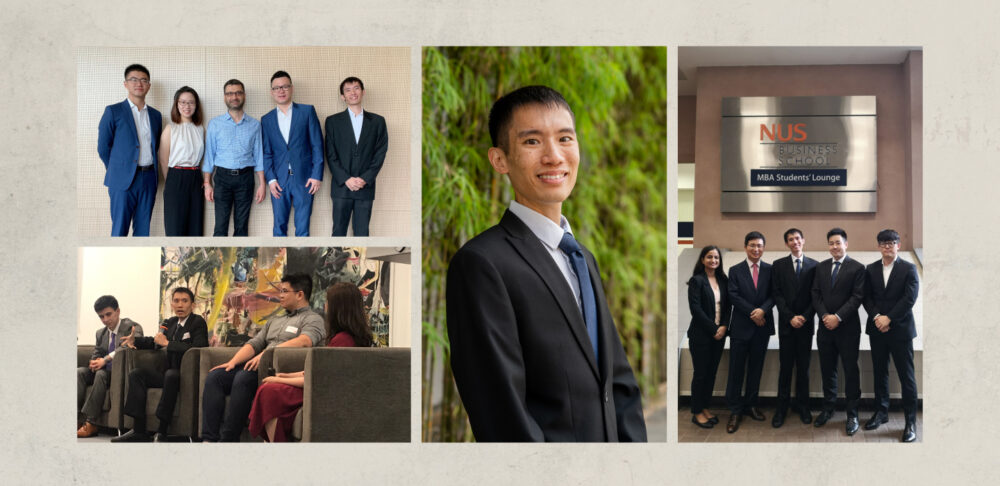Our graduates of this year’s Commencement discuss how NUS has transformed their lives. MBA and Master of Public Policy graduate Nicholas Zeng details moving towards his career objectives and becoming more data-savvy.
Q: What were your goals when you joined NUS?
Having been an educator all my professional life, I wanted to broaden my horizons and learn about how politics, economics, and businesses interact to create the contexts in which my students can learn. I also hoped to learn about how organisations function to be a better team member and leader.
Q: How has NUS guided you to your objectives?
Embarking on the MBA and Master of Public Policy double degree gave me a comprehensive survey of the skills, thinking frames, and insights from various disciplines.
Today, I am far more comfortable working with and understanding data, disciplined in making an argument with it and applying this to my work in an educational institution. Developing strategic thinking and effective communication also helped me understand the best practices in leading and transforming organisations.
Returning to school was also highly refreshing and provided an unintended but rich opportunity for reflection about the role of education and educators!

Nicholas with his classmates. (Photos taken before the pandemic).
Q: How has NUS Business School transformed your life?
Meeting classmates and making friends from all over the world and from different professional backgrounds helped me understand the power of bringing different perspectives to a discussion and the importance of building trust. I have learned that I need to listen better, and even now, I continue to work at it!
I am more comfortable working with data, thanks to the curriculum on analytics. My new knowledge will help me better evaluate the learning of my students and the effectiveness of the programmes I organise for them.
Also, the modules on strategic planning process enable me to think in a more disciplined way about organisational transformation and focusing the efforts of the student groups and staff workgroups.
Finally, knowing about what businesses need in terms of skills and attributes enables me to guide my students in their learning journeys better and motivate them to develop their skills and aspirations in a focused yet exploratory way.
Q: What is the biggest takeaway from your time here?
A good idea, a brilliant innovation, is not likely to be successful, either in turning a profit or making a social impact, if there is no effective plan for it to work at scale. Hence there is a need for a disciplined and focused pursuit of an idea to make it work, as well as the practical wisdom and grit to overcome obstacles.
Q: What are the memorable moments of your time at NUS?
All group projects — working on cases, putting together slide decks, rehearsing presentations in various corners of the school, as well as making last-minute changes to our forecasts after including yet another overlooked parameter.
I remember the wonderful discussions we had — the “A-ha” moments when someone raised a point or shared something pertinent from his or her experience, and the unscripted conversations where we shared our stories and our lives.
I also remember the MBA Consulting Project module where we worked as consultants with a non-profit organisation. Their hospitality, their willingness to listen to outsiders from a university, and how much they taught us about what makes a good organisation function — these were truly inspiring and memorable to me.




